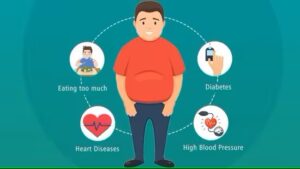Cardiac Arrest Risk for Diabetic Patients: Strategies for Heart Health
Diabetes, a chronic condition characterized by elevated blood sugar levels, affects millions worldwide. Unfortunately, it doesn’t travel alone; it often brings along a host of complications, with heart disease being a significant concern. Diabetic individuals face a heightened risk of cardiovascular issues, including the potentially life-threatening cardiac arrest. However, armed with knowledge and proactive measures, they can effectively mitigate this risk and safeguard their heart health.

Cardiac Arrest Risk for Diabetic Patients: Proactive measures to mitigate risk and safeguard heart health.
Managing Blood Sugar Levels:
The cornerstone of diabetes management, maintaining optimal blood sugar levels, is paramount for preventing complications. A balanced diet, regular exercise, and adherence to prescribed medications are vital components of this strategy. By consistently managing blood sugar levels, diabetic patients can significantly reduce their risk of cardiovascular issues, including cardiac arrest.
Controlling Blood Pressure and Cholesterol:
High blood pressure and abnormal cholesterol levels are common companions of diabetes, further elevating the risk of heart problems. Diabetic individuals should prioritize keeping these factors in check through lifestyle modifications, such as a heart-healthy diet and regular physical activity. Additionally, medications may be necessary to achieve and maintain optimal blood pressure and cholesterol levels.
Embracing a Healthy Lifestyle:
Leading a healthy lifestyle is crucial for diabetic patients looking to protect their heart health. Quitting smoking, maintaining a healthy weight, and moderating alcohol intake are essential steps in this journey. These lifestyle changes not only reduce the risk of cardiac arrest but also contribute to overall well-being.
Regular Exercise:
Physical activity is a potent tool in the fight against heart disease. Diabetic individuals should aim for at least 150 minutes of moderate-intensity aerobic exercise each week, complemented by strength training exercises. Exercise not only helps manage blood sugar levels but also strengthens the heart and improves cardiovascular health.
Medication Adherence:
Medications play a vital role in diabetes management and reducing the risk of complications. It’s crucial for diabetic patients to adhere to their prescribed medication regimen diligently. Regular check-ups with healthcare providers ensure that treatment plans are adjusted as needed to optimize heart health.
Stress Management:
Chronic stress can take a toll on the heart, exacerbating cardiovascular risks. Learning effective stress management techniques, such as mindfulness, relaxation exercises, or engaging in hobbies, can help diabetic individuals protect their heart health.
Regular Medical Check-ups:
Routine medical check-ups are essential for monitoring heart health and making necessary adjustments to treatment plans. Healthcare providers can assess cardiovascular risk factors, provide guidance on lifestyle modifications, and address any concerns or complications promptly.
Education and Support:
Empowering oneself with knowledge about diabetes management and heart health is empowering. Diabetic individuals should seek out educational resources and support groups to stay informed and motivated in their journey towards better heart health.
Emergency Preparedness:
Being prepared for emergencies, such as a heart attack or cardiac arrest, can be life-saving. Diabetic patients and their loved ones should familiarize themselves with the signs of a heart attack, learn CPR techniques, and have an emergency plan in place.
Conclusion:
While the risk of cardiac arrest may loom large for diabetic individuals, it is not insurmountable. By adopting a proactive approach to heart health, including managing blood sugar levels, controlling blood pressure and cholesterol, embracing a healthy lifestyle, and seeking regular medical care, diabetic patients can significantly reduce their risk of cardiovascular complications. With dedication, education, and support, they can navigate the journey towards better heart health and a brighter future.


Can you be more specific about the content of your article? After reading it, I still have some doubts. Hope you can help me. https://www.binance.info/hu/register?ref=FIHEGIZ8